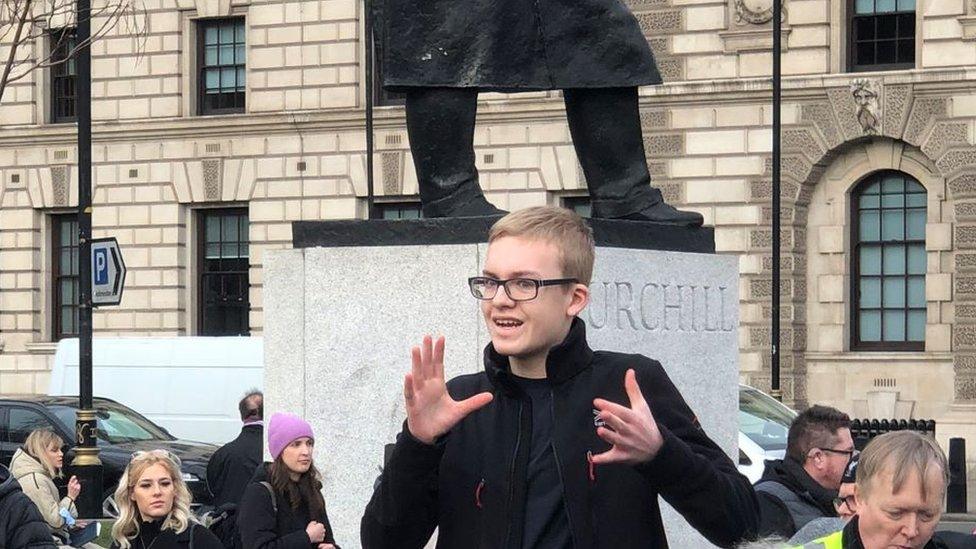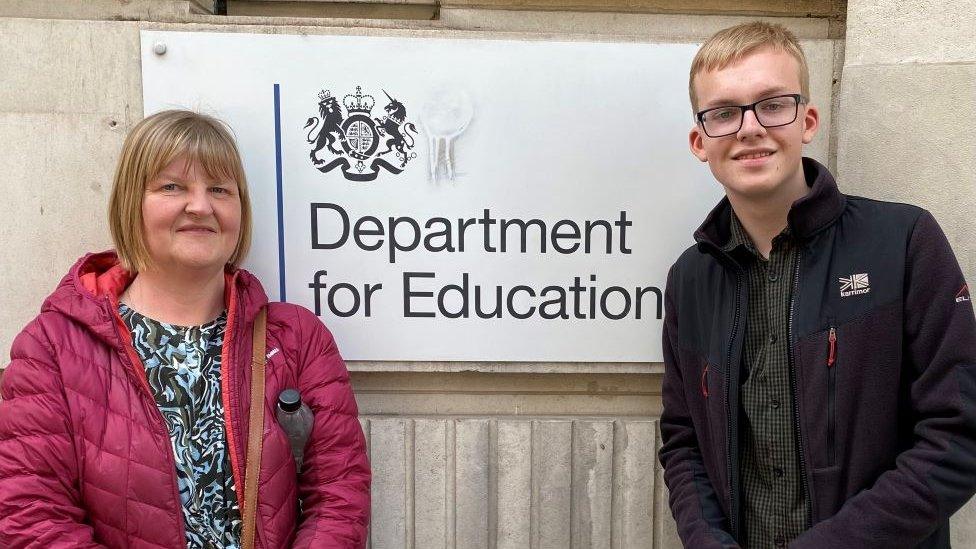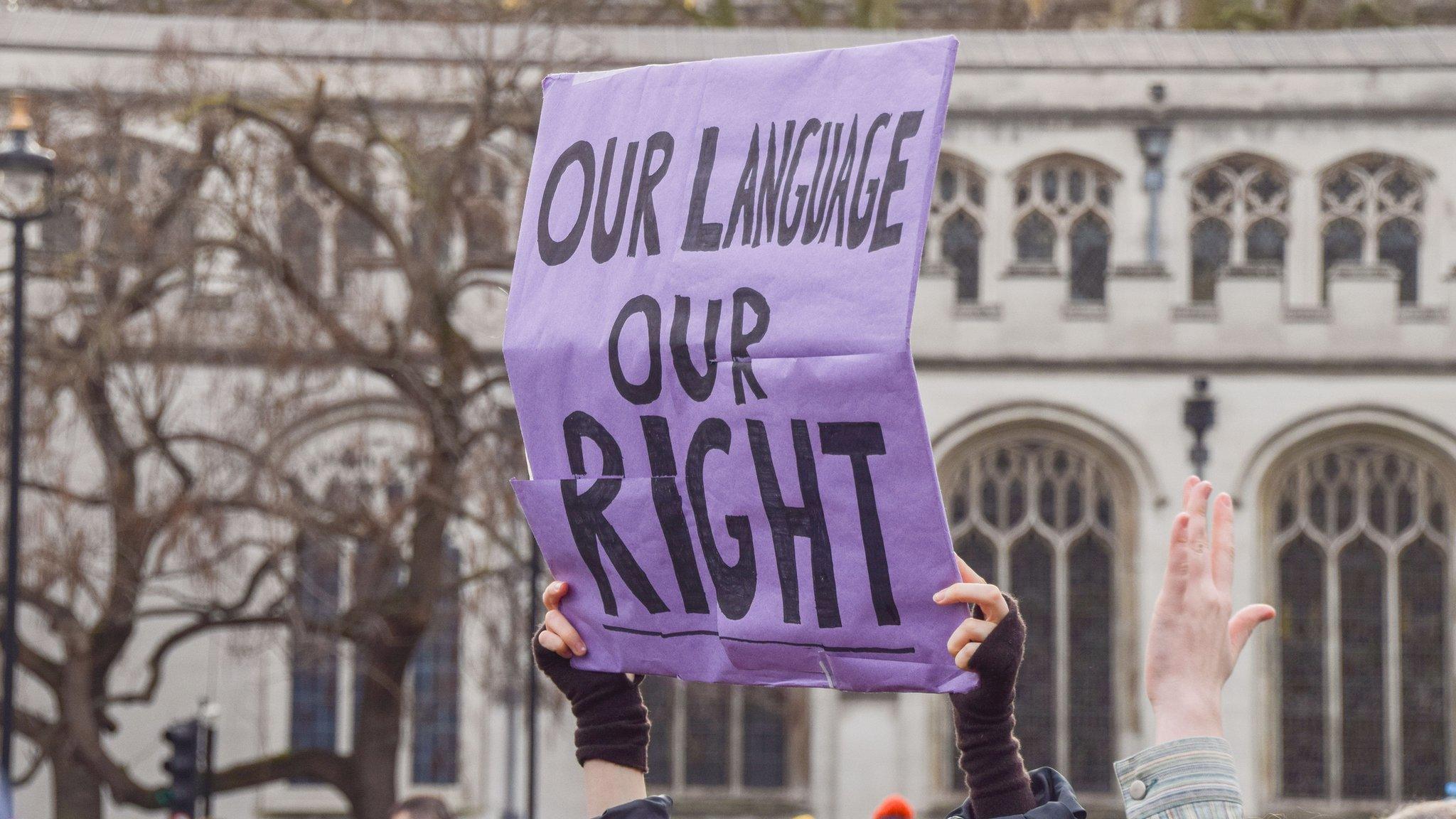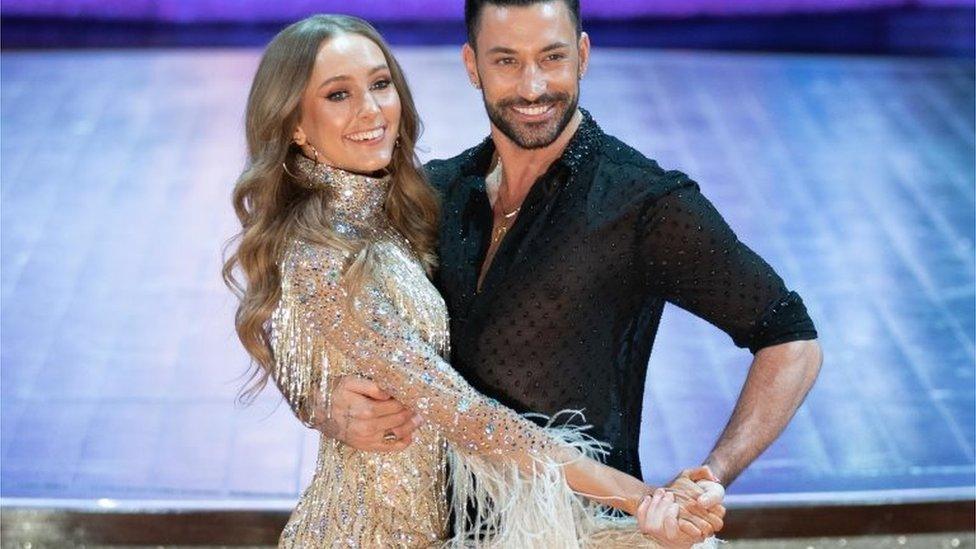British Sign Language GCSE 'a step towards equality' says teen campaigner
- Published

Daniel Jillings said a GCSE in BSL would help both deaf and hearing students
A deaf teenager who has been campaigning for a GCSE in British Sign Language (BSL) said it would be "a step towards equality".
Daniel Jillings, 17, from Lowestoft in Suffolk, has been campaigning on the issue since he was 12 years old.
In June, the Department for Education announced a 12-week consultation, external for a GCSE in BSL.
The teenager said the qualification would "build respect" for what is a primary language for many.
The British Deaf Association estimated about 151,000 people use BSL in the UK, external, with 87,000 being deaf.
Daniel is profoundly deaf and was born without a cochlea, meaning he cannot use hearing aids or cochlear implants and does not use speech.
He has always used BSL to communicate and began campaigning for it to become a GCSE subject, believing it was unfair that he could not take a formal qualification in his own language.
A GCSE would be "a step towards building equality between deaf and hearing students", he said.
"Deaf students can feel proud of their deaf identity as BSL, and its rich heritage is taught to deaf children and hearing peers.
"Hearing students can learn BSL and its history and culture, meaning that the language would be respected and embraced," he added.
He also said it would mean no "deaf children are deprived of language".
In 2003, BSL was recognised as its own language, but it was not set out in legislation until the British Sign Language Act was passed in 2022.
It recognised BSL as as language in its own right and required public bodies to promote the language.
However, Daniel said governments had not "understood the significance of BSL" so far.
Passing the Act in 2022 was "amazing" but not the final step, he said.
"I hope that a BSL GCSE will encourage children to learn to sign and that families of deaf children can use BSL with them from a young age," said Daniel.

Ann Jillings hoped teaching BSL in schools would help hearing parents of deaf children in the future
His mother, Ann Jillings, said she had seen her son "grow in confidence" over years of campaigning, from meeting government ministers to making speeches to Parliament.
She also hoped that if BSL was taught in schools, it would help hearing parents with deaf children.
"I wish I had that opportunity at school," she said.
"I use BSL every day but when Daniel was born, if I'd known some then it would have made it so much easier."
The consultation closes on 8 September, with the government aiming to introduce the GCSE from September 2025.
Education Secretary Gillian Keegan said: "It is fantastic that British Sign Language will soon be taught in schools up and down the country.
"Good communication is essential both inside and outside the workplace and this historic GCSE will give students a vital life skill valued by employers.
"This new qualification will break down barriers, advance equality of opportunity, and celebrate the history and rich culture of British Sign Language."

Follow East of England news on Facebook, external, Instagram, external and Twitter, external. Got a story? Email eastofenglandnews@bbc.co.uk , externalor WhatsApp on 0800 169 1830
- Published18 March 2022

- Published28 January 2022
